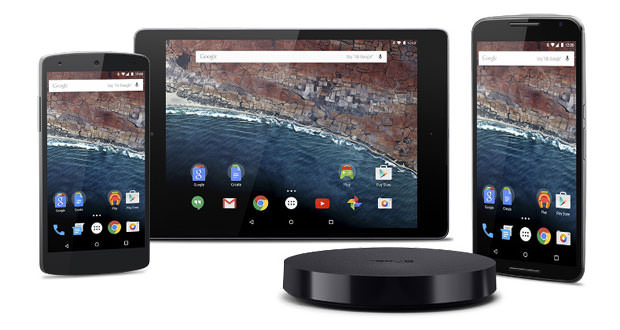Last May, Google announced Android M. Scheduled for autumn, this is a smaller version of the current Lollipop. Nevertheless it is provided very interesting news, some taken directly from the competition.
Since the early days, Android has been accused as an operating system created on the ideas of others, more precisely on the concept of smartphones brought to market by Apple. With the iPhone, Apple has made the smartphone more democratic (in whole, but not in price): fast and simple to use, beautiful to look at. If today the two platforms are quite similar, Android was born at first with a basic concept very different: did not support multi-touch and required the use of a dedicated physical keyboard. All features that Google had to hastily change given the success obtained from the phone of Apple. In future, then both companies have drawn from the inventions of the other, and continue to do so today.
- App permissions : until now, Android only means of ensuring access to sensitive parts of the smartphone before installing an app. With Android M permits are requested only when really needed, in a way very similar to what happens to time on iOS.
- Menu selection of the text : With Android M, when text is selected will open a context menu with various options (copy, cut, paste). Before they appeared on the top of the screen, while with the next release the implementation is very similar to that of iOS.
- Native support for biometric sensors : introduced for the first time with the iPhone 5S, native support for biometric sensors for fingerprint scanning is present for some time on iOS. Even Android M will have it, along with a payment service similar to Apple Pay.
- Doze : Android M is expected to function for energy saving applications in the background. With the device in stand-by, most of the app will go into a state of ” deep sleep “, in which will be processed only notifications most important. The reopening, this will take a little more time, but it is the secret of the battery life of the iPhone and iPad in stand-by.
- Do not disturb mode : on Android M, there will be a function that uses iOS long. Do not disturb mode, the iPhone allow you to turn off the ringer if someone makes two calls in three minutes. The same particular function will be on the next version of the green robot.
- Support MIDI sources : Android does not natively support MIDI, short for Musical Instrument Digital Interface. In contrast, iOS has the feature for years now. It allows you to connect electronic musical instruments and producing sounds through these. The gap will be filled with Android M.
But Google is certainly not the only category to build on the competitors. Even Apple did with its iPhone OS 9, which likely will debut a few weeks earlier than Android M. In this page you can read the features that iOS 9 has robbed the world of Android.

